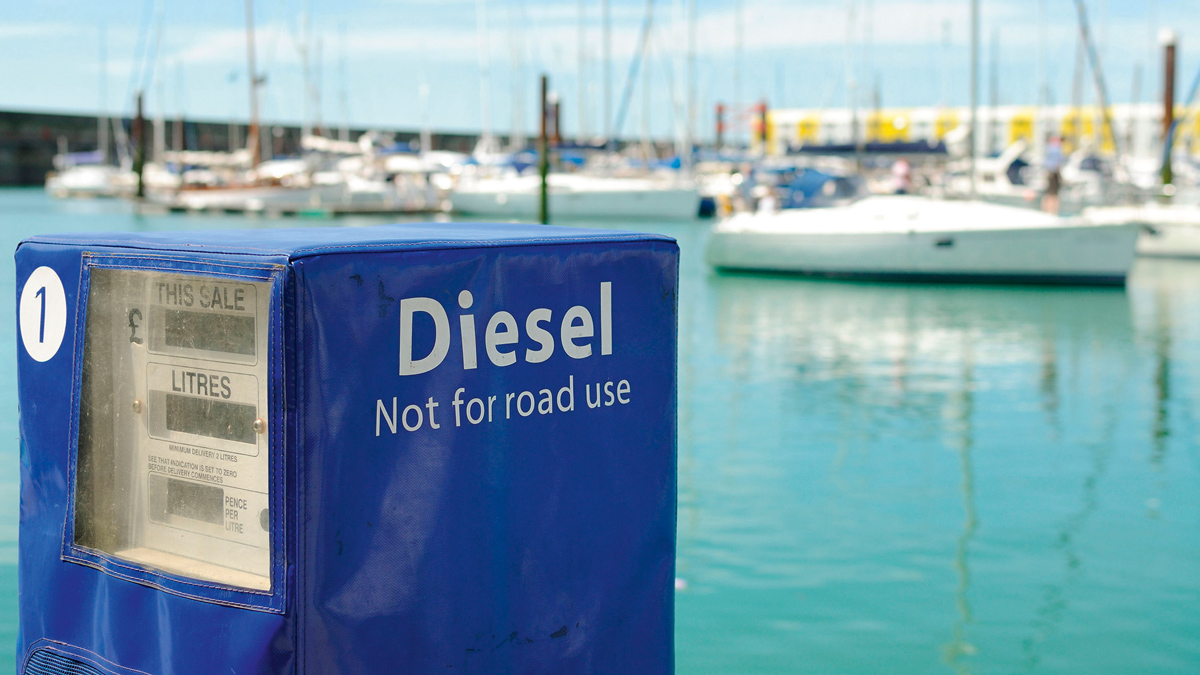PBO’s engine whisperer Stu Davies ponders the not-so-silly question of why we need to change boat engine oil…
Why do we change our boat engine oil? A seemingly innocuous question I was asked a few months ago. Because we do? Because it’s dirty? Because the handbook says so? It got me thinking and to do some research because it’s not such a silly question!
Boat engine oil is there to lubricate, to prevent our engines wearing, to cool it. Basically the moving parts of the engine ‘float’ on a thin film of oil which is pumped around the engine by a pump from the sump.
This oil is also sprayed on the underside of the pistons to help cool them and to lubricate the piston rings and where they come into contact with the cylinder walls.
To do all these things it has to remain stable under extreme pressure in the bearing areas, and it is also used in some boat engines to cool them. It also has to be able to negate acidic combustion products.
Seasonal grades of engine oil
Going back to my youth, oil came in certain grades… different viscosities for different temperatures. So 30 or 40 weight for summer, then come winter, change it for a 20 weight, less viscosity for cooler temperatures so that the oil could circulate easily in a cold engine.
Just as I started riding motorbikes along came Duckhams 20/50, a revelation, a fetching colour of green and no need to change it for the seasons! It acted as a 20 weight during the winter and 50 weight during the summer. Before multigrades came along the straight 30, 40, 50 weight oil was exactly that.
Article continues below…
What’s the best boat fuel? Is it worth paying for premium? Ask the experts
PBO reader Roy Gwilliam asks: “I have a Yanmar 3YM20 engine in my Dehler 32, built in 2010. I generally…
Engine health check: 6 steps to make sure your diesel is in fine fettle
An idea struck me when I ordered an oil analysis for Merlot, my lockdown project boat. Routine health checks are…
Generally speaking they had no detergents or additives. They didn’t hold combustion products in suspension and any one who worked at the time on engines will remember the black sludge that used to build up internally from these products.
Nowadays multigrade oils contain all sorts of clever additives for clean running. The oil filter takes out larger particles formed by the combustion process, anything from around 15 microns upwards. The rest are held in suspension.
Additives, such as potassium hydroxide, are used to keep the TBN (total base number) of the oil high (i.e. going back to our school chemistry days, an alkaline environment). It negates the acids formed by the combustion process. These acids can and do attack the metals used in bearings in our engines.
Simplistically speaking, our oil becomes ‘full’ of suspended combustion products like carbon and the acids ‘wear out’ the TBN products in it. So going back to ‘because it’s dirty’ you can add to that ‘because it wears out’. We change boat engine oil because it has reached the end of its productive life.
Why not subscribe today?
This feature appeared in the Summer 2022 edition of Practical Boat Owner. For more articles like this, including DIY, money-saving advice, great boat projects, expert tips and ways to improve your boat’s performance, take out a magazine subscription to Britain’s best-selling boating magazine.
Subscribe, or make a gift for someone else, and you’ll always save at least 30% compared to newsstand prices.
See the latest PBO subscription deals on magazinesdirect.com





